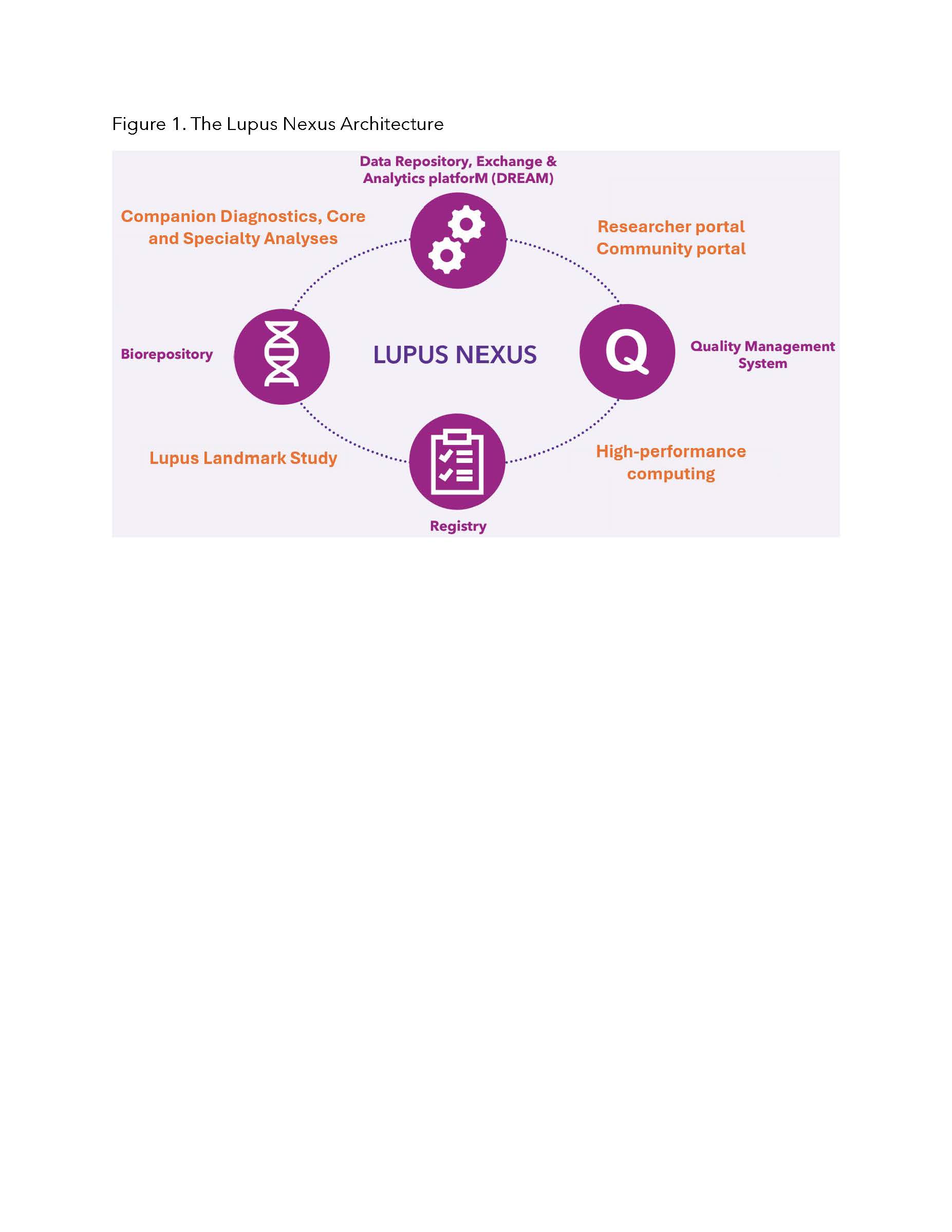Session Information
Date: Tuesday, October 28, 2025
Title: (2547–2566) ARP Posters I
Session Type: Poster Session C
Session Time: 10:30AM-12:30PM
Background/Purpose: Community-wide access to highly curated, extensive datasets is critical to advance disease understanding and accelerate precision medicine. To address this unmet need in lupus, the Lupus Research Alliance launched the Lupus Nexus (LNx), an initiative aimed at creating one of the most comprehensive and accessible lupus research datasets ever assembled. Disease heterogeneity, social determinants of health and other factors have made patient recruitment and retention especially challenging in lupus. A patient-centric, collaborative approach to research designs can improve study recruitment, retention and overall robustness of longitudinal datasets.
Methods: From the onset of planning in 2020, individuals living with lupus were engaged to solicit their input on the design and implementation of this unique resource. Starting with a Patient Engagement Working Group (PEWG) consisting of 9 individuals living with lupus and representing individuals with and without research experience, aspects of the LNx’s architecture (Figure 1) were informed through the qualified patient perspective, including:
Mapping the patient journey to inform the design of the Lupus Landmark Study
Advising on how data and sample collection methods can be made more convenient for study participants
Advising on outreach strategies to help ensure recruitment targets are met
Providing feedback on educational materials and retention strategies to ensure participant engagement over time
The PEWG evolved into a Patient Advisory Group (PAG) and continues to advise on various areas across the program, now including content and accessibility considerations for a Community Portal, a digital space offering valuable content for those living with lupus (e.g. educational blogs, research highlights) as well as allowing study participants to access study information and results. As such, the PAG is poised to help transform recruitment and retention methods by employing the use of digital tools amid shifts in technological landscapes.
Results: Including the patient voice as a keystone principle throughout the LNx has led to enhanced research operations while meeting the needs of a broad community. As of 05/12/25, there are 386 participants enrolled in the registry (Table 1), reflecting those disproportionately affected by lupus. By incorporating the voices of those with lupus in developing outreach strategies and design, two years of study operations have resulted in a retention rate of 97%, exceeding early expectations.
Conclusion: Heterogeneity of disease, social determinants of health and other factors have made study recruitment and retention especially challenging in lupus. The patient-centric approach adopted by the LNx provided valuable inputs to study design, recruitment and sample collection but also inspired patient activation and advanced engagement of patients in research activities. These advocates state that participation empowers them to represent the perspectives of patient sensitivities and creates a sense of community, motivating one another along their journeys. Members of the PEWG and PAG have become organic ambassadors for the program, continuing to inform numerous aspects for this dynamic resource.
To cite this abstract in AMA style:
Fekete M, Davis A, Canton C, Donovan C, Menezes C, Bennett D, Fitzpatrick B, Jones J, Lee A, Lewis M, Mendez L, Perkins C, Tipple D, Wilson R, Lim S, Khosroshahi A, Kim A, Kelly D. Patient-Centricity: The Keystone to Recruitment and Retention of Research Participants for the Lupus Landmark Study and the Success of the Lupus Nexus [abstract]. Arthritis Rheumatol. 2025; 77 (suppl 9). https://acrabstracts.org/abstract/patient-centricity-the-keystone-to-recruitment-and-retention-of-research-participants-for-the-lupus-landmark-study-and-the-success-of-the-lupus-nexus/. Accessed .« Back to ACR Convergence 2025
ACR Meeting Abstracts - https://acrabstracts.org/abstract/patient-centricity-the-keystone-to-recruitment-and-retention-of-research-participants-for-the-lupus-landmark-study-and-the-success-of-the-lupus-nexus/


.jpg)